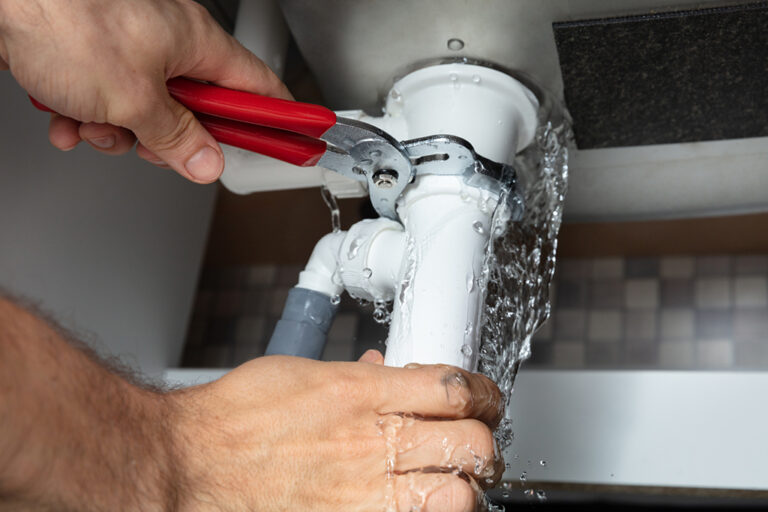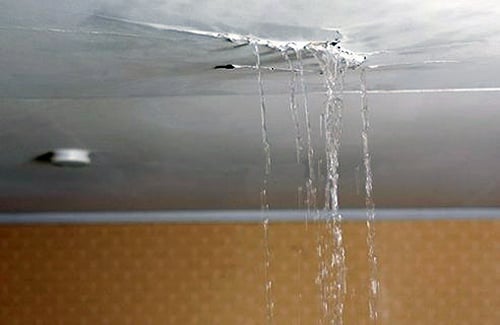As homeowners, one of the most daunting issues we may face is a slab leak. Understanding how to detect slab leaks early can save you from expensive repairs and significant damage. Slab leaks occur when the water pipes under the concrete foundation of your home develop leaks. Detecting these leaks early is crucial, as they can lead to severe structural damage if left unaddressed.

What Are Slab Leaks?
Slab leaks refer to leaks that occur in the water lines running beneath the concrete slab foundation of your home. These leaks can be caused by various factors, including pipe corrosion, poor installation, and the natural shifting of the ground.
Common Causes of Slab Leaks
1. Pipe Corrosion
Over time, pipes can corrode due to chemical reactions with the soil or water, leading to leaks.
2. Poor Pipe Installation
If pipes are not installed correctly, they are more susceptible to damage and leaks.
3. Ground Shifting
Natural movements in the ground, such as earthquakes or soil erosion, can put pressure on pipes, causing them to leak.
Signs of a Slab Leak
Recognizing the signs of a slab leak early can prevent extensive damage. Here are some indicators:
1. Unexplained Increase in Water Bills
If you notice a sudden spike in your water bill without any changes in usage, it might be due to an unseen leak.
2. Damp or Wet Floors
Moisture or water stains on the floor can indicate a leak beneath the slab.
3. Warm Spots on the Floor
If you feel warm areas on your floor, it could be a sign of a hot water leak.
4. Low Water Pressure
Reduced water pressure can be a result of water escaping from a damaged pipe.
5. Sound of Running Water
Hearing water running when all taps are off is a sure sign of a leak.
How to Detect Slab Leaks
Detecting slab leaks requires a combination of observation and technical tools. Heres how you can do it:
1. Visual Inspection
Look for signs such as water pooling, floor cracks, and mold growth.
2. Use of Leak Detection Devices
Specialized equipment like listening discs and thermal imaging cameras can help pinpoint leaks.
3. Professional Plumbing Inspection
Hiring a licensed plumber to conduct a thorough inspection is often the most reliable method.
Preventing Slab Leaks
While not all slab leaks can be prevented, taking certain precautions can reduce the likelihood:
1. Regular Plumbing Maintenance
Schedule routine checks to catch potential issues early.
2. Water Pressure Regulation
Ensure your homes water pressure is within a safe range to prevent stress on pipes.
3. Soil Moisture Control
Maintaining consistent soil moisture can prevent ground shifting that leads to leaks. Learn more about groundwater seepage prevention tips.
Repairing Slab Leaks
Once a slab leak is detected, prompt repair is crucial:
1. Spot Repair
Involves opening the slab at the leak location and fixing the pipe.
2. Rerouting
Rerouting pipes around the damaged section can be a less invasive solution.
3. Epoxy Pipe Coating
Applying an epoxy coating to the inside of pipes can seal small leaks.
Impact of Slab Leaks
Ignoring slab leaks can lead to significant consequences:
1. Structural Damage
Water can erode the foundation, leading to cracks and instability.
2. Mold and Mildew
Moist environments foster mold growth, which can affect health.
3. Increased Water Bills
Continuous leaks result in water wastage and higher bills.
When to Call a Professional
If you suspect a slab leak but are unsure, its best to consult a professional. A licensed plumber can provide accurate detection and effective solutions. For more insights, explore how to detect wax ring leaks under toilets.

FAQs About Slab Leaks
1. How common are slab leaks?
Slab leaks are relatively common, especially in older homes with aging plumbing systems.
2. Can slab leaks be prevented?
While not all slab leaks can be prevented, regular maintenance and monitoring can reduce the risk.
3. How much does it cost to repair a slab leak?
The cost can vary significantly based on the severity of the leak and the repair method, ranging from a few hundred to several thousand dollars.
For more tips on preventing water damage, check out Hippo’s guide on water damage prevention.
This article contains affiliate links. We may earn a commission at no extra cost to you.






